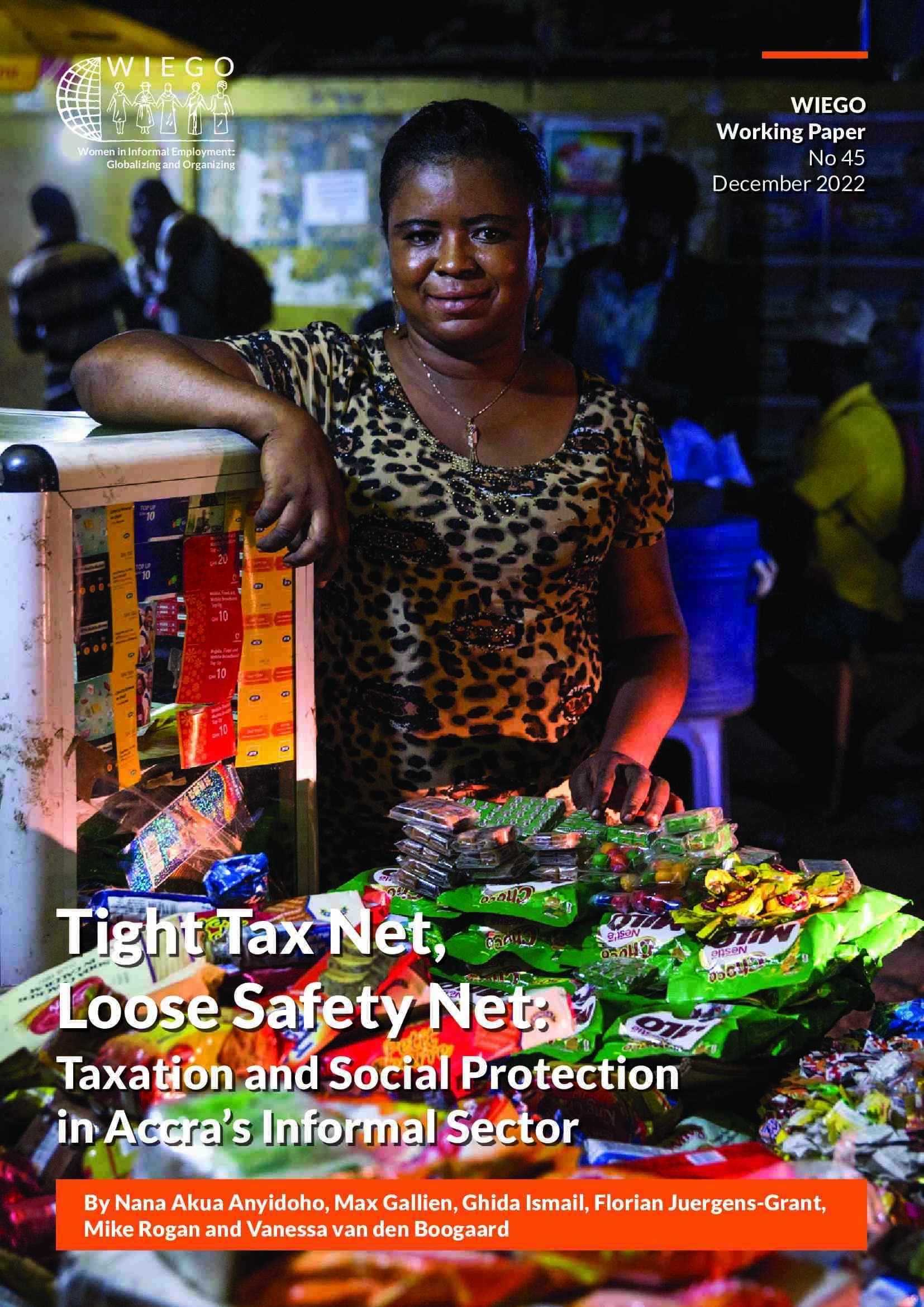Tight Tax Net, Loose Safety Net: Taxation and Social Protection in Accra’s Informal Sector
While debates about taxation and social protection in relation to the informal economy are widespread, there is little empirical evidence to support them. Using new and representative data on informal workers in Accra, Ghana, this paper contributes novel evidence on the extent to which informal workers in Accra have access to social protection and benefitted from COVID-19 relief programmes.
The paper explores the tax burdens of informal workers in Accra, as well the degree to which they might be able to make additional contributions through taxes or contributions to social protection schemes. It investigates the equity, redistributive, and gendered impacts of informal workers’ fiscal burdens and access to social protection and COVID-19 relief programmes.
Three key findings emerge. First, most informal sector operators in Accra are not covered by social protection, with the exception of the National Health Insurance Scheme (NHIS). Second, in contrast to a number of claims, the paper finds that informal sector operators in Accra do pay a range of taxes, permits, levies and fees. Especially for informal sector operators at the lower end of the income spectrum, the ratio of taxes to earnings is substantially higher than for formal workers. Third, informal sector tax burdens are highly regressive, with a disproportionate burden falling on the lowest earning segments of the informal sector. The evidence therefore suggests that for substantial proportions of the informal sector there is little room for further taxation or contributions.
View list of all: Working Papers

